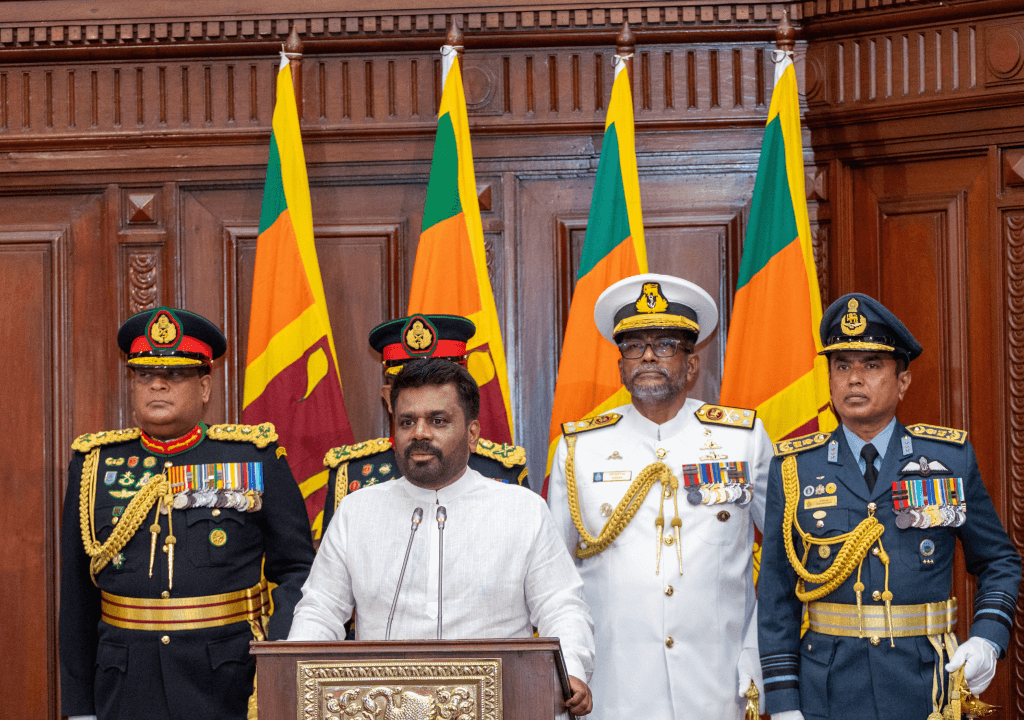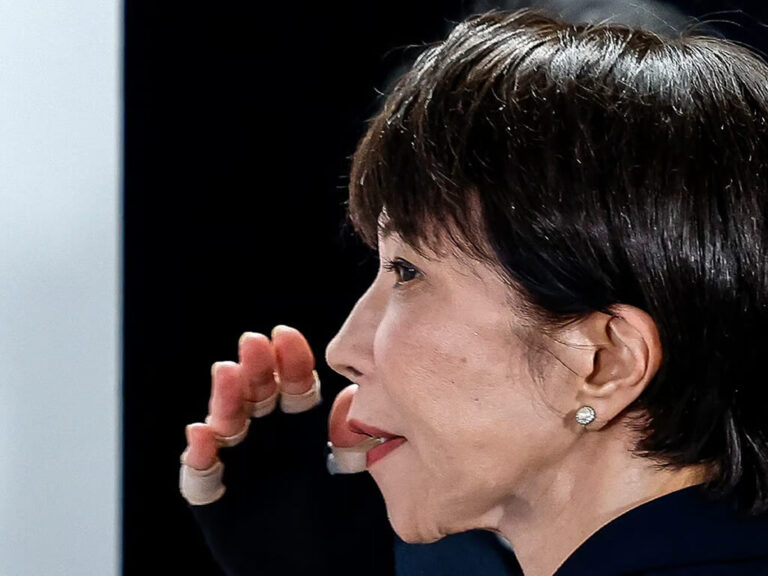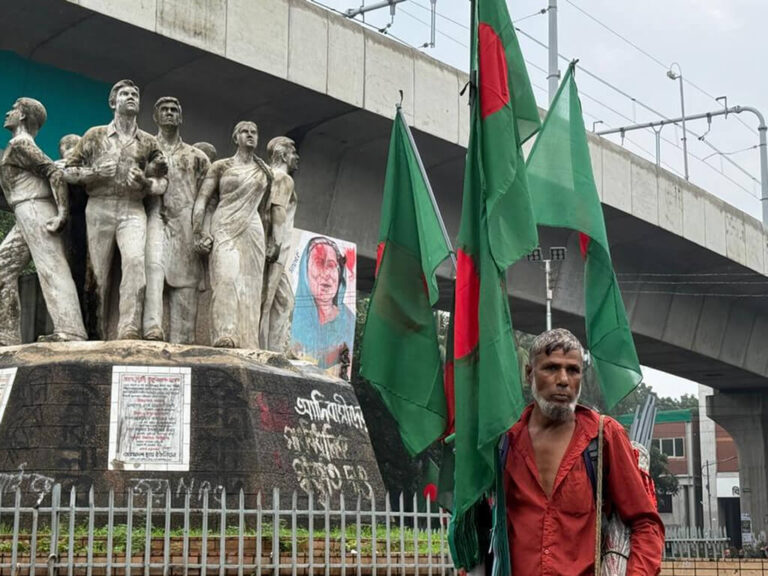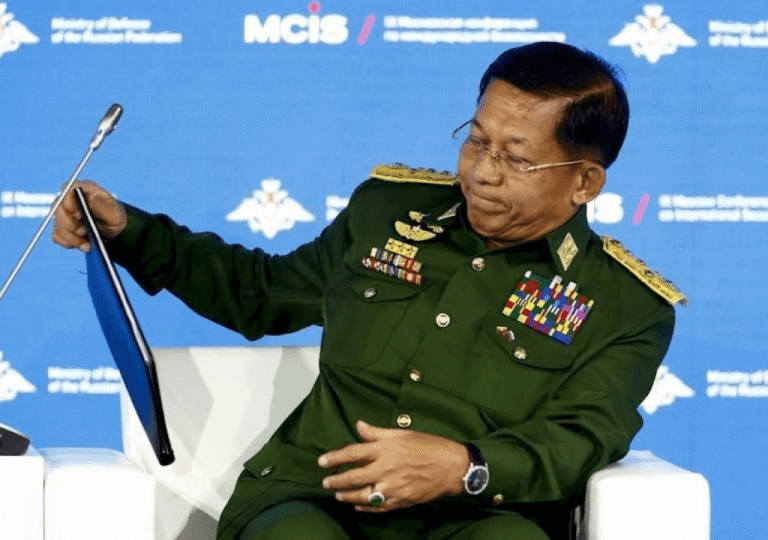Anura Kumara Dissanayake, a Marxist leader who has emerged victorious in Sri Lanka’s presidential election, has been inaugurated as the nation’s new president. He steps into this role amid a landscape fraught with severe economic distress, dire living conditions, and intricate geopolitical challenges. For many, Dissanayake embodies the hopes of the common people, symbolizing a shift away from the entrenched political dynasties that have long been associated with corruption and mismanagement. The electorate’s decisive rejection of the old political elite, held culpable for the ongoing economic malaise, has paved the way for this momentous change. Dissanayake’s ascendance is not merely a political victory; it signifies a profound desire for accountability and renewal in a country yearning for stability and progress.
The presidential election advanced to a runoff for the first time in the country’s history, as no candidate managed to secure the requisite 50% of the votes in the initial round. Anura Kumara Dissanayake and opposition leader Sajith Premadasa emerged as the frontrunners, yet neither could claim outright victory, highlighting the hard fought election. As the second-preference votes were counted, Premadasa gained some ground, but Dissanayake’s initial lead proved insurmountable. The final results revealed a significant margin, with Premadasa garnering only 32.76% of the vote, nearly 10% behind Dissanayake, who ultimately won by a commanding lead of over 1.2 million votes. Following the tally of second-choice votes, Dissanayake was declared the victor, marking a pivotal moment for the nation. In stark contrast, Ranil Wickremesinghe, who took office amid the economic turmoil of 2022 and implemented stringent austerity measures, languished in third place with a mere 17.27% of the vote. Meanwhile, a member of the ousted Rajapaksa family trailed far behind, finishing fourth with just 3%, a reflection of the electorate’s growing disenchantment with the Rajapaksa dynasty.
Anura Kumara Dissanayake’s victory as the leader of the hardline leftist Janatha Vimukthi Peramuna (JVP) and a prominent figure in the broader National People’s Power (NPP) coalition is widely regarded as a watershed moment for his party. In the 2019 presidential election, the NPP managed to secure a mere 3% of the vote, while the JVP currently holds only three seats in parliament. Historically, the JVP has been perceived as an unelectable fringe group, tarnished by its involvement in violent uprisings and targeted assassinations that claimed thousands of lives in the 1980s. The party has also faced multiple bans over the years, further entrenching its reputation as a radical outlier in Sri Lankan politics. Dissanayake’s ascent challenges these long-held perceptions, signaling a potential recalibration of the political landscape.
Since the early 2020s, the Janatha Vimukthi Peramuna (JVP) has steadily gained political momentum, driven by Sri Lanka’s deepening economic and political crisis. As the nation declared itself virtually bankrupt, a pervasive disillusionment with the entrenched political parties and leaders that had long held sway began to take root. Anura Kumara Dissanayake adeptly harnessed this growing discontent, dedicating the two years following the protests that ousted Rajapaksa to cultivating grassroots support. Under Dissanayake’s leadership, the National People’s Power (NPP) attracted a wave of new voters, championing an agenda of anti-corruption and transparency while toning down the JVP’s previously extreme Marxist rhetoric. In a deliberate effort to reshape the party’s image, Dissanayake sought to distance it from its violent past, publicly apologizing for the killings committed during earlier insurrections.
In an election centered on the pressing need for economic recovery, Anura Kumara Dissanayake skillfully tapped into the anger and frustration that had fueled the Aragalaya protests. He wholeheartedly embraced the movement’s critique of the political elite, calling for an end to corruption and political patronage, while assuring the public that those responsible for past wrongdoings would be held accountable. Dissanayake went a step further by pledging to renegotiate the terms of the IMF deal, which many viewed as excessively punitive towards the country’s most vulnerable populations. This clear stance resonated deeply with the electorate, dispelling any lingering doubts and leading them to decisively cast their votes for Dissanayake as the next president.
Dissanayake’s victory has ignited considerable concern in New Delhi, as the ascent of a pro-communist, pro-China leader in Colombo presents a formidable challenge for India. With Sri Lanka already burdened by significant debt to China, there are fears that Dissanayake may seek to bolster ties with Beijing, a move that could serve China’s strategic interests. Compounding these anxieties is the apprehension among the Tamil community in Sri Lanka, which endured a tragic genocide under the previous Rajapaksa regime. Many Tamils harbor doubts about Dissanayake’s stance, particularly given his prior support for military actions during the civil war. As the situation unfolds, any grievances faced by the Tamil community could pose additional complications for India, underscoring the intricate geopolitical dynamics at play in the region.
However, political experts believe that Sri Lanka cannot progress without the support of its larger neighbor. They argue that Dissanayake’s brand of communism has been diluted by the need for practicality, suggesting he may ultimately seek to strengthen relationships with India. A strong partnership with India could enable Sri Lanka to effectively navigate its geopolitical landscape, and potentially lift the country out of its economic dilemma.








